Government Wolves and Christian Shepherds | When is the Right Time to FIGHT?
Join Warrior | Mind Body & Soul as soon as possible to prepare for the battles ahead.
The final day for sign-ups is Sunday the 14th. https://warriormbs.com
In this episode, Jeremy Slayden sits down with a Pastor, Attorney, and Politician to discuss WHEN is the right time for the church to say enough is enough to an evil government.
A relevant story from history:
IN THE 1770s, the Reverend John Peter Muhlenberg pastored two churches in Woodstock, Virginia. One was an English-speaking Episcopal church, the other a German-speaking Lutheran church. He was also a member of the Virginia legislature. In January 1776, he was attending the legislative session in Williamsburg, and war with Great Britain was looming on the horizon: Boston had been blockaded by the British navy, Charlestown burned, Lexington and Concord attacked; public stores of gunpowder seized in Virginia, and the Battle of Bunker Hill fought.
He returned home from the state capitol to his churches, and on January 21, 1776, stood in his pulpit and delivered what was to become his farewell sermon. He recounted the crisis then facing America, reminding them how America had been founded in pursuit of religious and civil liberties and that they were now in danger of losing those liber-ties. He concluded with these words.
“In the Bible, there was a time for all things, a time to preach and a time to pray, but those times have passed away!”
Then in a loud voice, he pointed to verse 8, declaring; “There is a time to fight and that time has now come!”
He then bowed his head and offered a dismissal prayer, but instead of following his usual custom of going off to the changing room after his sermon, he began to disrobe in front of the congregation. When he finally shed his clerical robes, he stood before them in the full uniform of a military officer. He descended the pulpit, weapons in hand, and marched the back of the church, reminding his parishioners that if they did not get involved and protect their liberties, they would have no liberties left to protect. Outside the church, Pastor Muhlenberg ordered drummers to beat for recruits, and 300 men from his two congregations joined him that day, becoming the eighth Virginia regiment. Muhlenberg went on to become one of America's highest ranking military officers, finishing the Revolution as a Major General (one of only nineteen officers in the Continental Army to achieve one rank!' He participated in the major battles at Brandywine, Germantown, Monmouth, Stonypoint, and Yorktown; and if you tour Valley Forge today, you can still see the Muhlenberg Barracks-the small cabins built by his parishioners in their a tempt to survive that brutal winter. In the Rotunda of the US Capitol, Pastor Muhlenberg appears on horseback alongside George Washington and his other generals in the massive paint ing of the Surrender of the British at Yorktown.
But, Peter had a brother who was also a minister, the Rev. Frederick Augustus Muhlenberg, pastor of a church in New York City. Frederick was critical of his brother's involvement and strongly opposed what Peter had done, telling him:
“You would have acted for the best if you had kept out of this business from the beginning..I now give you my thoughts in brief: I think you are wrong in trying to be both soldier and preacher together.
However, Peter replied with some strong thoughts of his own.
“I am a clergyman it is true, but I am a member of society as well as the poorest layman, and my liberty is as dear to me as to any man. Shall I then sit still? Heaven forbid it! ….. I am called by my country in its defense-the cause is just and noble... and so far I am from thinking that act wrongly, I am convinced it is my duty so to do- and duty I owe to God and my Country.”
Peter understood that if he did not get involved, he could not protect what was important to him. Frederick, however, was unconvinced.
But in 1777, the British arrived in New York City. Of the nineteen churches in the city, they burned ten to the ground, they also drove Frederick from his own church and desecrated the building. Frederick thus found himself rethinking his position, and, like his brother, he, too, decided to get involved. He became a significant political leader in Pennsylvania, and then was elected the first Speaker of the U.S. House of Representatives, where he was instrumental in framing the Bill of Rights. In fact, his signature is one of only two that appears on that document. A large painting of him hangs in the Speakers' Lobby of the U.S. House in honor of his role as America's first Speaker.
These two pastor brothers were instrumental in helping America secure both its civil and religious liberties, understanding that there is indeed "a time to fight!”
-
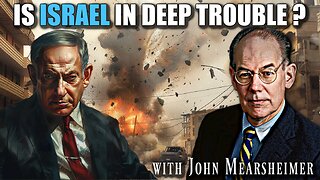 1:35:00
1:35:00
JSlayUSA
22 days agoIs Israel in Deep Trouble? A presentation by John Mearsheimer
5.53K14 -
 29:11
29:11
The Why Files
1 day agoMystery in Cisco Grove: Don Shrum’s Encounter with UFOs, Aliens and Robots
37.6K25 -
 2:26:44
2:26:44
Mally_Mouse
11 hours agoLet's Play -- Crowd Control Minecraft
39.9K4 -
 2:19:18
2:19:18
The Quartering
16 hours agoTrump Mistrial Bombshell, RNC Plans For Trump In Jail & Maybe Some Video Games
77.6K170 -
 3:10:32
3:10:32
SNEAKO
16 hours agoIs Trump a Criminal?
120K113 -
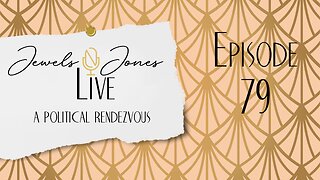 2:22:40
2:22:40
Jewels Jones Live ®
1 day agoTHE ART OF LAWFARE | A Political Rendezvous - Ep. 79
78.9K32 -
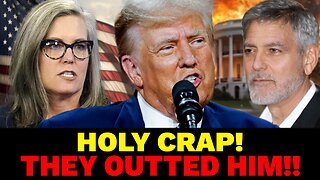 25:30
25:30
Stephen Gardner
1 day ago🔴BREAKING: Trump MISTRIAL details | George Clooney's Netanyahu SECRET LEAKS!!
91.7K455 -
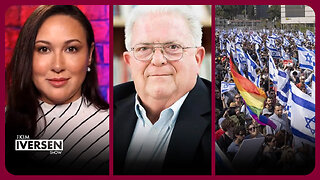 1:18:43
1:18:43
Kim Iversen
1 day agoAmbassador Chas Freeman "Israel Has Never Put Forward A Peace Proposal"
103K222 -
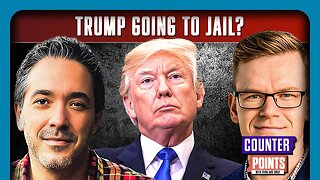 48:34
48:34
Breaking Points
2 days agoMAGA Lawyer DEBATES Liberal Analyst On Trump Legal Cases
71.2K59 -
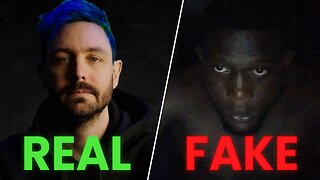 19:09
19:09
Scammer Payback
4 days agoConfronting Scammer Payback Imposters
124K40